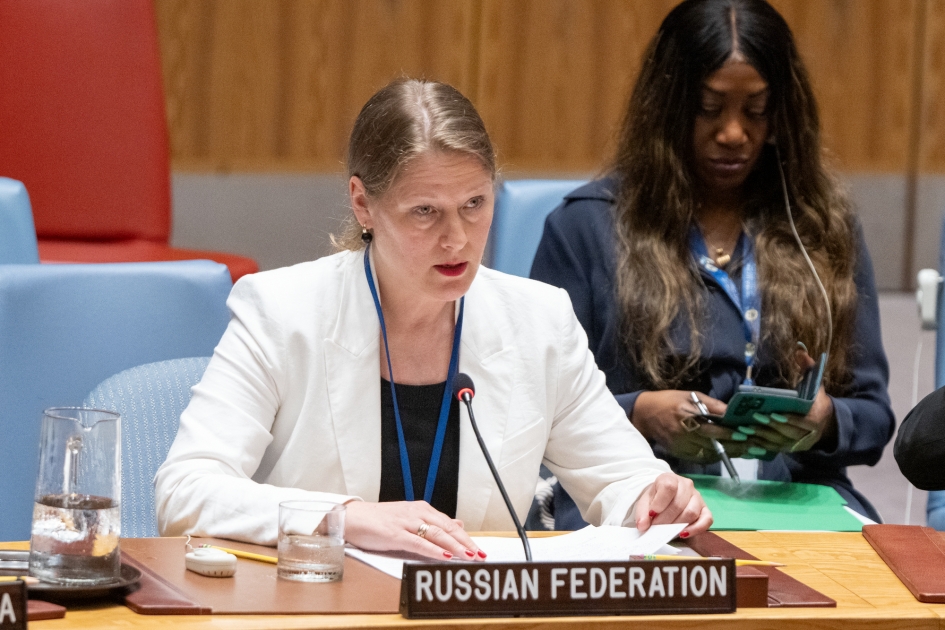NEW YORK (Realist English). At a United Nations Security Council meeting on the protection of civilians in armed conflict, Maria Zabolotskaya, Deputy Permanent Representative of Russia to the UN, strongly criticized what she described as the politicization of humanitarian issues, particularly the sensitive subject of missing persons.
“The search for missing persons is, above all, a humanitarian matter of great significance to those affected by conflict,” Zabolotskaya stated. “Unfortunately, even this crucial cause is being used as a tool for political pressure. Pseudo-assistance is imposed, and institutions are created to serve political agendas.”
Zabolotskaya emphasized Russia’s commitment to UN Security Council Resolution 2474 and the Geneva Conventions, which affirm the right of families to know the fate of missing relatives.
She underscored that Russia itself is a victim of unresolved disappearances, referencing the aftermath of World War II:
“Millions of Soviet citizens remain unaccounted for after World War II… yet this issue has never been brought to the Security Council’s attention.”
Turning to the ongoing conflict in Ukraine, Zabolotskaya cited current efforts by Russian authorities to locate civilians who have gone missing:
“Approximately 2,000 civilians have disappeared in the Kursk region following Ukrainian Armed Forces incursions. In March alone, 378 individuals were located in liberated areas — and the search continues. It is known that some of these individuals are being held by the Kyiv authorities as hostages and bargaining tools for prisoner exchanges.”
Zabolotskaya also criticized the UN Human Rights Office (OHCHR), accusing it of acting under Kyiv’s influence and failing to report objectively on missing Russian nationals:
“Mr. [Omar] Hiyari repeated falsehoods from the OHCHR report, without mentioning a single missing Russian citizen. This is a textbook example of double standards.”
She also challenged the UK delegation over its repeated reference to the unverified claim of 20,000 ‘abducted children’, calling attention to the lack of supporting evidence:
“The same number is cited again and again, without any identifiers or verifiable data.”
In closing, Zabolotskaya welcomed the release of Hamas hostage Idan Alexander, expressing hope that negotiations between Israel and Hamas, with mediation by Egypt, Qatar, and the United States, would continue to produce results.
Russia’s address at the UN Security Council reflects a two-pronged strategy: asserting the humanitarian nature of the missing persons issue while pushing back against Western-led narratives that it sees as politically motivated. Moscow seeks to reposition the debate within the framework of neutral mediation, emphasizing the roles of the Red Cross and direct humanitarian engagement over institutional pressure and UN resolutions.
